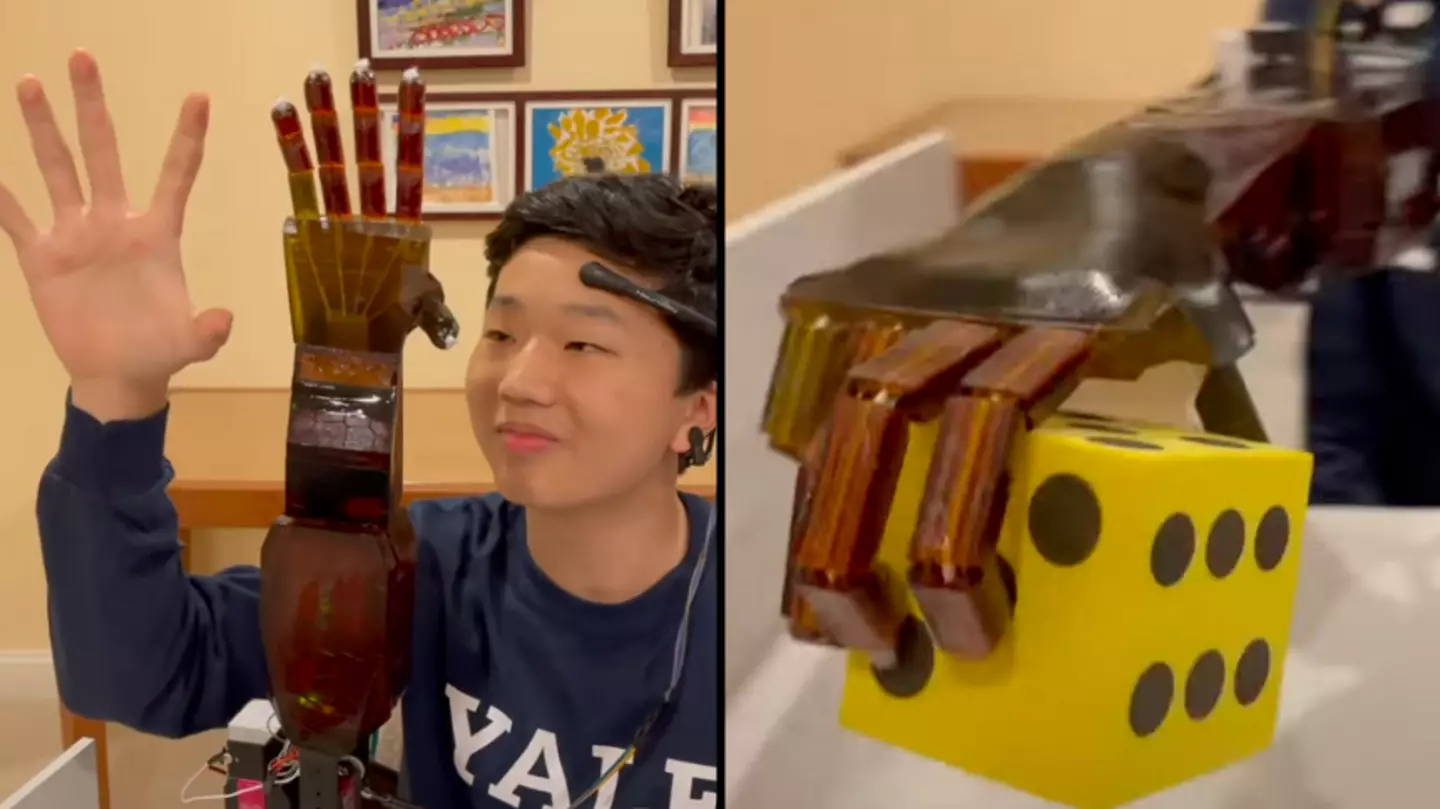
An American teenager has invented a low-cost prosthetic arm that can be controlled by the mind.
Benjamin Choi, 17, watched an episode of 60 Minutes that showed researchers implanting tiny sensors into the brain of the patient, which allowed her to move a robotic arm using only her thoughts.
However, the invasiveness of the operation led Choi to believe that there could possibly be a better solution.
He told Smithsonian Magazine: “I was really, really amazed at the time because this technology was so impressive.
Advert
“But I was also alarmed that they require this really risky open brain surgery. And they're so inaccessible, costing in the hundreds of thousands of dollars.”
Basic, body-powered prosthetic arms cost about AU$10,000 (US$7,000), while a more advanced full-arm Modular Prosthetic Limb, which contains 26 joins and hundred of sensors, costs AU$710,000 (US$500,000).
Choi had experience building robots and coding throughout his education and taught himself computer programming languages such as Python and C++.
The 60 Minutes documentary stuck out to him and when the pandemic hit in 2020 he decided he’d spend his time attempting to build a less-invasive prosthetic arm.
He used his sister's AU$100 (US$75) printer and some fishing line to print the arm in tiny pieces. He then bolted and rubber banded each part together.
The high schooler went through 75 iterations of his design to get to the point that it's now made from engineering-grade materials and able to withstand up to four tonnes.
It uses an artificial intelligence (A.I.) algorithm that interprets the user’s brain waves rather than surgery to control the arm.
It uses electroencephalography (EEG), which records the brain’s electrical activity through sensors on the head.
EEG is often used to diagnose epilepsy or brain disorders.
The sensors pick up brain wave movement and send them to a microchip in the prosthetic arm through Bluetooth, while also moving using head gestures and stops with intentional blinks.
Choi worked with six adult volunteers and collected their brain wave data while asking them to focus on clenching and unclenching their hands.
Forget about those other robot prosthetics that cost hundreds of thousands of dollars; this arm is only AU$450 (US$300).
Choi believes his algorithm could have use beyond prosthetics and help in controlling devices such as wheelchairs and helping patients with ALS communicate.
Choi said: “Brain wave interpretation is a really big emerging field.
“My algorithm is the best of all the algorithms reported in literature by a pretty significant margin. I think it could have big applications going forward.”
The invention earned Choi a spot in the top 40 finalists of the Regeneron Science Talent Search, which is the United States’ oldest science competition for high schoolers.
Topics: Science, Technology, Good News